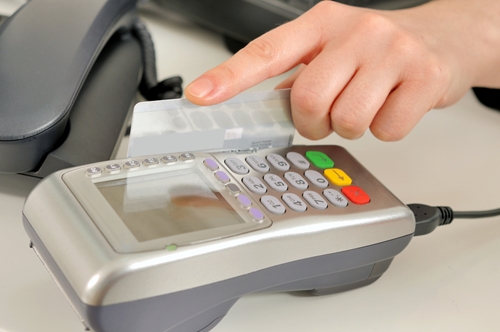Beware These Deceptive Credit Card Practices
Credit cards are a massively popular tool for American consumers. According to a study by the Nielson Report, we spent almost $5 trillion1 using these little pieces of plastic. With their convenience and added bonuses like cash back or airline miles, credit card issuers have enjoyed huge profits with such high levels of participation. That also means that competition in the credit card business is fierce. Companies will do whatever it takes to get you to sign on the dotted line. In some cases, according to some financial experts, they go too far.
The Consumer Financial Protection Bureau released a report on a few of the most common practices used by credit card companies to get you to part with your money. In some cases, what sounds like a good deal ends up costing consumers much more than they bargained for. According to analysis from NerdWallet, based on data from the Federal Reserve, as of 2015 there is $802 billion of outstanding credit card debt in the U.S.2 While some of this is comprised of revolving balances that get paid eventually, some credit users are still being tricked into spending more than they can pay, much to the benefit of card issuers who enforce high yet hidden fees. To combat rare but significant deceptive practices in the credit industry, the CFPB highlighted several specific ways some credit card companies mislead consumers. Be mindful of these practices when shopping for a new credit card, or when using any cards you currently have open.
Deferred-interest promotions
In the executive summary of the report’s findings, the CFPB explicitly mentions deferred-interest schemes as one of the most detrimental promotions currently in use by some credit card companies. It is now a common practice for credit issuers to offer an introductory period in which the customer pays no interest on any revolving balance for a certain length of time. According to Forbes, this is done with the understanding (on the part of the consumer), that any unpaid balances left at the end of the promotional period will be subject to an interest payment. In fact, with some cards, unpaid balances at the end of the promotion will be charged retroactive interest, which means the consumer was never really getting anything interest-free. Forbes contributor Nick Clements noted that this practice is common3 with retail credit accounts. What consumers should really look for is an offer to “waive” interest, not just “defer” it.
Expensive credit
In the wake of the Great Recession, the CFPB enacted several pieces of legislation designed to make credit cards more understandable for the average consumer and prevent excessive spending. In their analysis of the new rules a year after their enactment, the Bureau found marked improvements, but still much work to be done. For one, the CFPB found that the practice of dramatically raising interest rates with little advance warning was much less common. However, some card companies are still offering credit to individuals with a poor history of payment, at substantial cost to the consumer. Forbes noted one company that readily accepted consumers with subprime (600 or less) credit scores, but charged high fees and interest rates. One card in particular carried a 36 percent interest rate, while the norm is generally no higher than 23 percent. This card also included a processing fee and monthly fees that amounted to hundreds of dollars just to keep the account open. Forbes recommended staying away from these “subprime specialists” and instead opting for more mainstream card issuers.
Debt collection
Like many large corporations, credit card companies usually outsource their debt collection to other companies, which usually lessens some of their accountability and is less expensive for them. Debt collection is also an industry that is under-regulated, which is why the CFPB has several resources in place to combat aggressive tactics. From excessive calls to different rules regarding voicemails, the strategies used by debt collectors can vary widely according to Forbes. Many credit card users are unclear on their rights, and the CFPB blames much of this confusion on the unpredictability of debt collection services. If you think you are being unfairly treated by debt collectors, the CFPB has a reporting tool and other information on how to handle these situations.
If your current credit card company engages in any of these practices, it may be a good idea to stop using their services. Do your homework and pay attention to the fine print to find the card that works best for you.
The views expressed by the articles and sites linked in this post do not necessarily reflect the opinions and policies of Cash Central or Community Choice Financial®.
Sources:
1Business Wire. (2015, May 26). Retrieved from: https://www.businesswire.com/news/home/20150526006149/en/Credit-Cards-Continued-Rebound-Debit-Prepaid-Cards#.VWTzp1lVhBc
2El Issa, Erin. (2015, Dec 12). Retrieved from: https://www.nerdwallet.com/article/credit-cards/household-debt-study-2015
3Clements, Nick. (2015, Dec 3). Retrieved from: https://www.forbes.com/sites/nickclements/2015/12/03/5-risky-credit-card-practices-under-regulatory-scrutiny/?sh=1c5827826fa2

 You must have JavaScript enabled to use this site.
You must have JavaScript enabled to use this site.
 For a better user experience consider upgrading your browser.
For a better user experience consider upgrading your browser.

